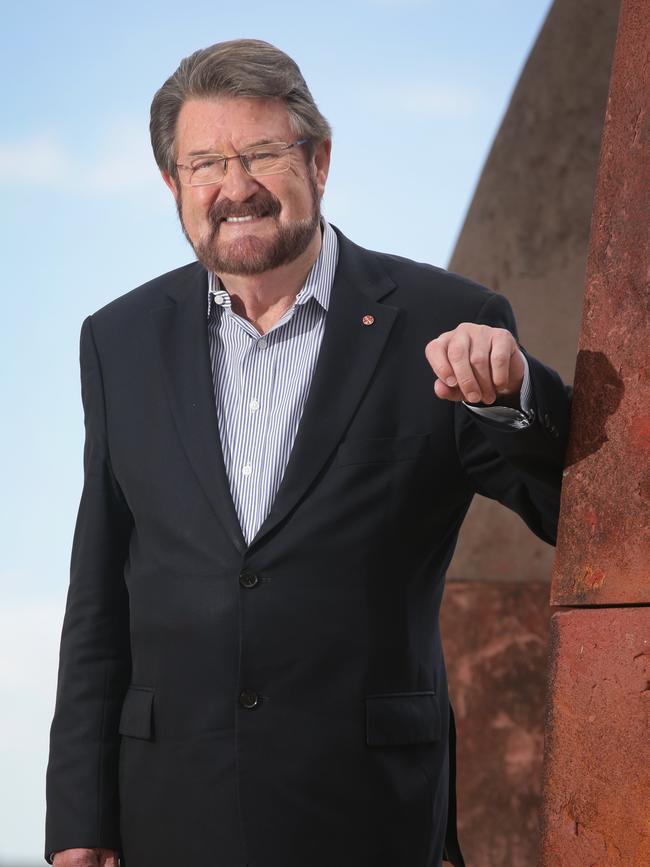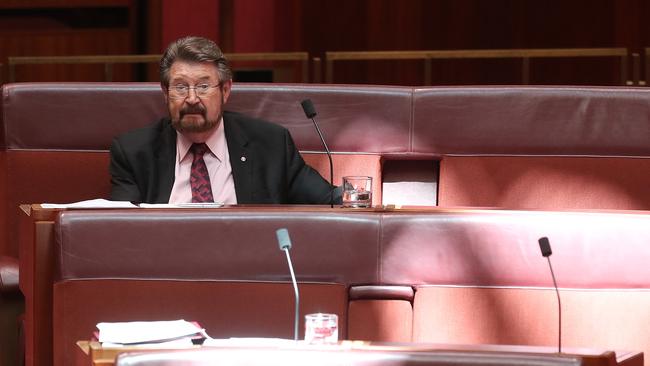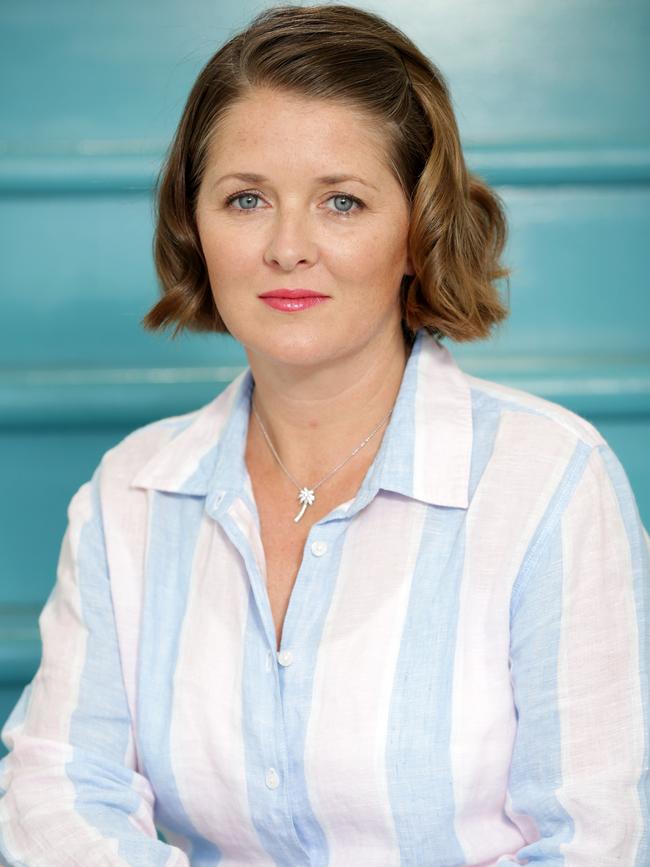Derryn Hinch: Why a national public sex register means I can die happy
As I talked to Home Affairs Minister Peter Dutton about his policy announcement for a national public register of convicted sex offenders I thought: “Now I can die a happy man.” Here’s why.

Opinion
Don't miss out on the headlines from Opinion. Followed categories will be added to My News.
It was just out of Ballarat, five years ago, and we were well into the 180km Jail to Justice walk from Langi Kal Kal Prison (where I’d just spent a couple of months) to the Spring St steps of Victoria’s Parliament House, where I would present to the Liberal government a petition with 130,000 signatures calling for a national public register of convicted sex offenders.
A regional police chief walked with me — probably against orders. He told me he had 126 names on his town’s secret register.
“If I did no other police work and visited three of them a day, I could not get to all of them even once a month,” he said.
FED GOVT PUSH TO CREATE NATIONAL SEX OFFENDER REGISTRY
PUBLIC IN DARK ABOUT WHERE SEX OFFENDERS LIVE
SEX OFFENDER INMATES IN VIOLENT WAR
He also said they relied on paedophiles to self-report if they changed addresses, names, jobs, or cars.
Years ago, a senior, well-braided police officer told me that the register was “a PR exercise to keep the public happy”.
That was why, when I talked to Home Affairs Minister Peter Dutton about his announcement on Wednesday that the Morrison Government was launching a policy for such a public register for convicted paedophiles, I thought to myself: “Now I can die a happy man.” A decades-long campaign was coming to fruition.
It is why I formed the Justice Party.
It is why I jumped from journalism and got into politics.
It is why I went to jail.

It is why we made the 10-day walk from Langi Kal Kal to the Victorian Parliament.
I’d been pushing for this long before arriving in the Senate in 2016. A year ago, I got a ban enforced on convicted paedophiles going overseas to vulnerable Asian countries on child rape holidays.
Since then, the passports of more than 850 paedophiles have been pulled.
Last year, on my relentless public register campaign, I had an early-morning call from Dutton, a former cop, saying “Let’s do it’.”
Since the Dutton announcement, and his call for state premiers to get on board, I have received the expected torrent of scepticism and abuse from the Twitterati — and some lawyers, in fairly torrid TV debates.
The three predictable complaints: vigilantes, rehabilitation, and privacy. Well, I don’t believe paedophiles can be rehabilitated, and I have this quaint, old-fashioned idea that when you rape a child you lose your right to privacy.
On the question of rehabilitation, I was interviewed on New Zealand’s version of 60 Minutes some years ago, and the female interviewer said: “You don’t believe paedophiles can be rehabilitated, do you?”

Knowing she was the mother of a young girl, I said: “Rachel, let me ask you: Would you let a rehabilitated paedophile babysit your child?” The look on her face showed me the answer was in the negative.
The fallback opposition to a public register is always the vigilante bogeyman.
I guess it has happened, but I haven’t seen such reports out of the US, where a register has been in force since 1996. I think this is why the Dutton version approved by Cabinet has only postcodes and not home addresses.
Years ago, for Channel 7’s Sunday Night program, I visited former child star Sarah Monahan, the victim of fellow Hey Dad! actor Robert Hughes, who is now in jail.
She pulled out her mobile phone and punched in key words. If she had typed “motel”, a dozen flags would have come up showing where they were in her area.
She typed “sex offenders’’ — and about 10 flags sprouted in and around her Texas suburb.
We picked one, and saw the offender’s photo, list of offences, and his home address.

We drove past a ranch-style house with a flag on the veranda and a pick-up truck out front. Nobody was daubing the walls with threatening slogans or throwing molotov cocktails.
Sarah said she checked it out because a young Australian girl had been staying with her, and she warned her to take a different route when walking to school.
In Florida, they go even further. A local sheriff showed me huge red and white signs (made in prison) which are posted in ex-convicts’ front yards. They say “Public Notice. John Smith is a convicted sexual predator. He lives at this location.”
I asked the sheriff what would happen if somebody tore the sign down. “I’d just put up a bigger one,” he drawled.
Anyway, we now have an answer for the Twitter trolls who keep harping “Yeah, what have you done in Canberra?’’
For two years I have been working behind the scenes with Dutton’s department and the Attorney-General’s department to bring this public register to fruition. There was no quid pro quo.
We still have to get it approved by state and territory governments. Who would dare block it? One of the first things the new JP members in the Victorian Upper House will do is to file a motion urging Premier Andrews to sign on.
What a great start to the new year.
Derryn Hinch is a Senator
Originally published as Derryn Hinch: Why a national public sex register means I can die happy


